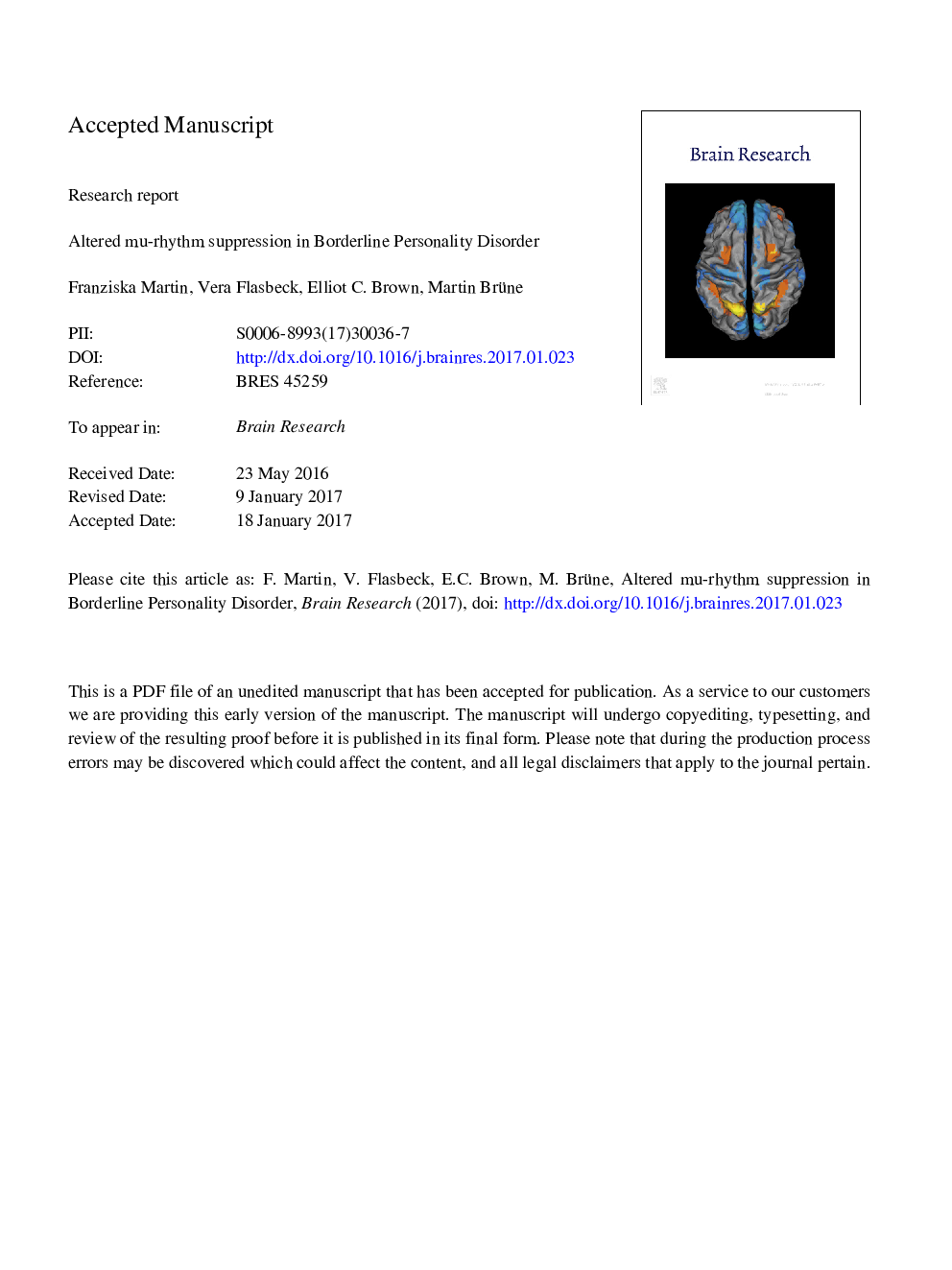| Article ID | Journal | Published Year | Pages | File Type |
|---|---|---|---|---|
| 5736837 | Brain Research | 2017 | 29 Pages |
Abstract
Borderline Personality Disorder (BPD) is characterized, among other symptoms, by interpersonal dysfunction and difficulties in empathizing. According to Simulation Theory empathy is linked to the activity of the mirror neuron system (MNS). Mu-rhythm desynchronization, as reflected in a suppression of electroencephalographic alpha-frequency bands (8-13Â Hz) provides a non-invasive electrophysiological window into MNS function. Here, we analyzed mu-desynchronization in twenty-two patients with BPD and twenty-three matched healthy controls in a reward and punishment-sensitive action observation task. In addition, we examined empathy using the Interpersonal Reactivity Index. BPD patients and controls did not differ with regard to mu-desynchronization when the entire time course was compared. However, differences in mu-suppression between groups occurred after the goal of the action became discernible. Correlations between mu-suppression and empathy ratings emerged only in controls, but not in the patient group. These findings suggest that BPD patients do not have a generalized impairment in MNS activity, though associations with contextual factors seem plausible.
Related Topics
Life Sciences
Neuroscience
Neuroscience (General)
Authors
Franziska Martin, Vera Flasbeck, Elliot C. Brown, Martin Brüne,
